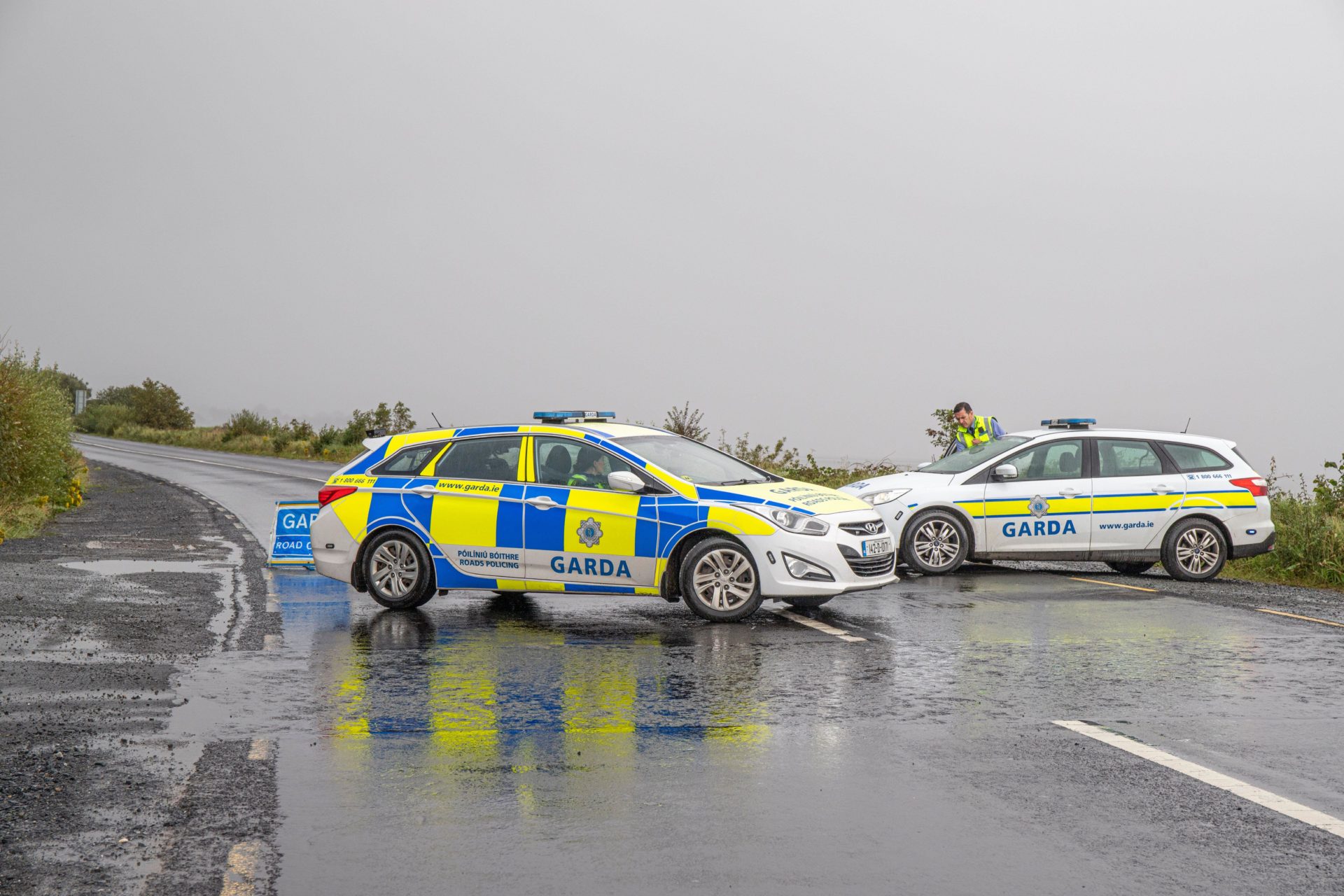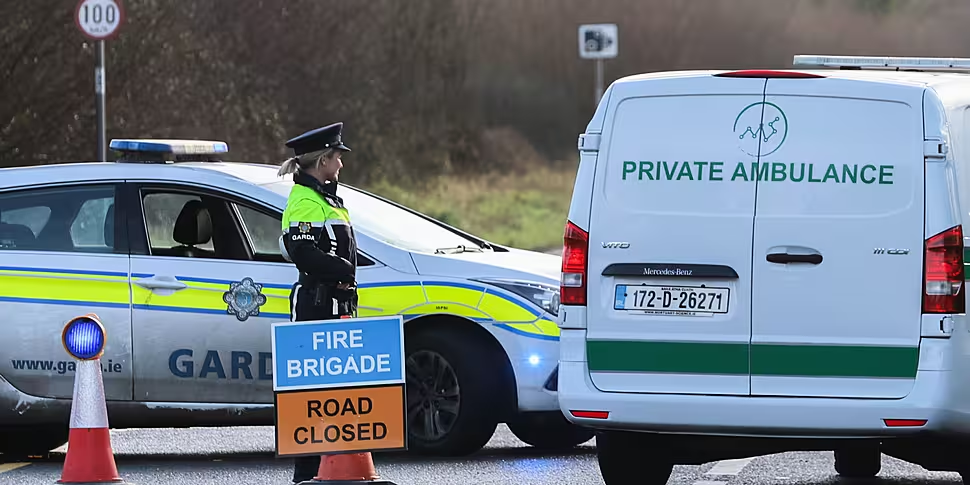Fitting all new cars with technology to prevent them speeding over 120 km/ph would send a message the Government is “really serious” about road safety, a Fine Gael TD has said.
So far this year, 149 people have died on Irish roads and Mayo TD Micheal Ring described it as a “very serious problem”.
On The Hard Shoulder, Deputy Ring said each lost life was a “tragedy” and too many families in Ireland have suffered over the years.
“European or Irish legislation would very simply [mandate] that manufacturers making new cars wouldn’t be able to go above 120 km/ph and just cap them at that,” he said.
“Then we wouldn’t have half the problems that we have in the country and that could be done overnight.
“That could be done by legislation.”
 Gardaí at the scene of a crash. Image: PA Images / Alamy Stock Photo
Gardaí at the scene of a crash. Image: PA Images / Alamy Stock PhotoDeputy Ring said he expected the policy would be described by officials as difficult to implement but urged them to show the same determination they did during COVID-19 to keep people safe.
“I know the Department will say that this can’t be done,” he said.
“They approved in COVID any legislation they wanted to bring in and if they were really serious about road safety, they could bring this in overnight.”
Education
Deputy Ring also said there should be more of a focus on road safety in schools, suggesting students could get extra Leaving Certificate points for completing a course.
“There’s a Transition Year in school, there should be a centre in every county in this country and every child going through secondary school should be taught how to drive,” he said.
“The first thing that should be done to them is they should be brought in and taught that accidents are taking place… It should be on the curriculum.
“Teach them the safety rules, teach them how to drive and show them what happens when an accident happens.”
In April this year, President Higgins signed into law the Road Traffic Act that introduced a range of measures designed to reduce road fatalities.
You can listen back here:
Main image: Gardaí and an ambulance at the scene of a car crash. Picture by: Sasko Lazarov / © RollingNews.ie









